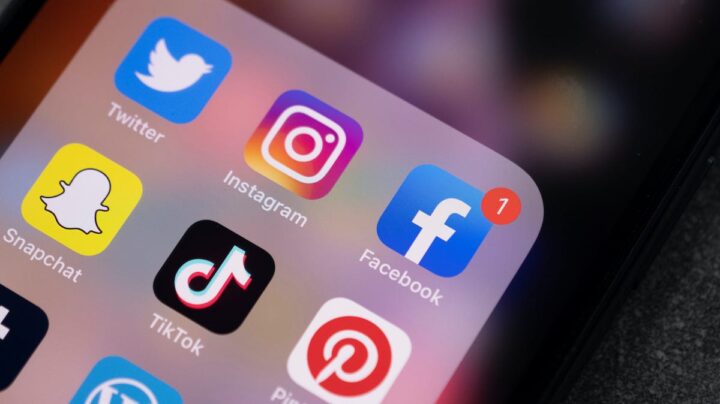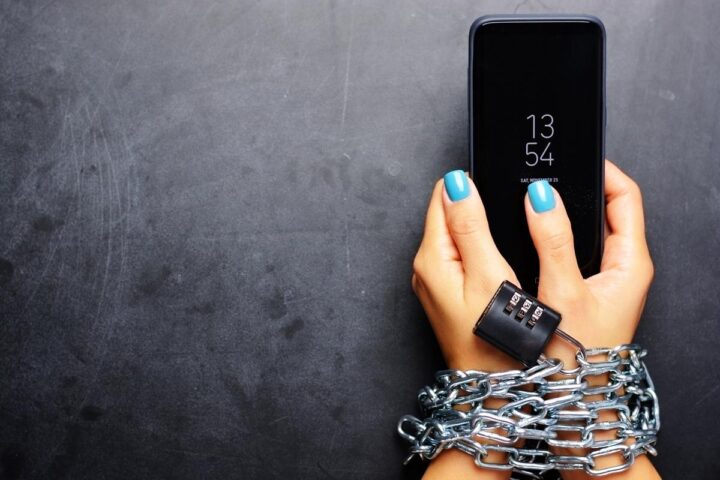Nowadays, we can’t imagine our life without smartphones. If you’re a parent, you may be concerned about how much your child is on their phone, using up the data plan. You can check out the iSelect comparison of mobile phone plans to ease some of the pressure of a busy phone bill.
Bills aside, have you ever wondered why phones are so addicting? Do we understand the impact of phone addiction on our daily lives and human health?
Below, we will explore the hidden secrets of phone addiction, its impact, and the solution.
The Psychological Effects Behind Phone Addiction
Startlingly, phone addiction, also known as Nomophobia, poses significant psychological effects on human health. It triggers the reward circuit in iSelect comparison of mobile phone plans our brain that is associated with pleasure, which keeps us hooked.
Interestingly, the excitement of getting a notification or a message activates the release of the chemical dopamine in our brains. This chemical initiates feelings of pleasure, somewhat similar to other substances like chocolate or drugs. Hence, we unknowingly fall into a cycle of addiction.
Another paramount psychological effect on human health is the Fear of Missing Out (FOMO). The thought of not being updated with the latest news, posts, or messages induces an intense fear which further strengthens our attachment to the phones.
Furthermore, it leads us into a fallacy of productivity where we feel productive by just being engrossed with our phones. However, in contrast, it drastically reduces our real productivity.
How Social Media Apps Exploit Human Psychology

Social media platforms are designed to take advantage of human health and psychology by promoting constant interaction and reloading feeds. This encourages users to remain engaged, resulting in more screen time and an increase in the likelihood of addiction.
Their innovative technologies induce a constant need to check for updates or feeds, nudging the desire for validation, acceptance, and instant gratification.
The use of colors, sounds, and instant notifications in the latest technology today are additional strategies applied to keep users engrossed with their phones at a high value. They give a sense of reward, and accomplishment, thus hooking us to the applications.
The Impact of Phone Addiction on Daily Life
Unfortunately, the impact of phone addiction on our daily lives and human health can be severe and wide-ranging. It can affect mental health, relationships, and overall quality of life.
Constant virtual interactions limit our real-life experiences, leading to isolation and hampering our emotional intelligence. Family ties often get strained due to constant neglect owing to too much phone interaction. Our productivity takes a hit as we feel driven towards our phones.
Moreover, it hampers our physical human health as well. Long and continuous screen time disrupts sleep patterns, causes neck, and back problems, and even harms our eyesight. The sedentary behavior further heightens the risk of cardiovascular diseases.
Overcoming Phone Addiction

Though daunting, phone addiction is not unconquerable. One can resort to several strategies and solutions to manage it and better our human health.
Setting a schedule for phone usage, turning off notifications, or using grayscale mode can help in curbing phone usage. One could also substitute phones with activities such as reading books, walking, or meditating.
Moreover, making conscious efforts to engage directly with people instead of virtually, might improve real-life interactions and keep you away from your phone.
Altogether, understanding the root cause of phone addiction, and its effects, and consciously implementing strategies to reduce it can help in promoting a healthy relationship with technology. Having a balanced behavior towards phone usage is crucial.
Establishing healthy digital habits can enable us to use phones responsibly. The smartphone has become a constant companion. We keep it by our bedside at night and tote it around during the day. We give in to the interruptions of emails, texts, and social media messages. When we hear the ring tone alerting us to a new message, we put our immediate conversations with friends and family on hold and answer phones when it is not socially appropriate to do so.
Our sense of phone etiquette and propriety has caused us to lose our bearings in our contact with one another, which is a fundamental shift in human behavior.
Why then do we permit ourselves to be disturbed? Why do we think it’s important to respond to these calls? Perhaps the addiction began
Many individuals now consider cell phones to be so useful and powerful that they are practically necessary.
In fact, when your phone disappears, it’s tempting to believe that you’re the one who’s lost. So how can you tell if your obsession with your phone is a real, life-altering addiction or just a 21st-century cultural phenomenon?
In order to determine the solution, let’s examine the findings of recent research. We’ll also look more closely at the signs of excessive phone use, its negative impacts, and how to stop letting your phone control your everyday activities.

Is Addiction to Cell Phones a Genuine Thing?
According to Pew Research Centre, 81% of Americans now own cell phones, up from just. Your hand is automatically reaching for that recognizable device on the bedside table as soon as you wake up, even before your eyes have had time to acclimatize to the morning light. The device is both comforting and demanding to have in your hand.
Every spare moment, every stop, every quiet period of the day is occupied with a routine peek, swipe, or scroll. The digital world takes the stage, and the physical world recedes into the background. Formerly merely a tool, your phone is now a part of who you are.
You yearn for its diversions, likes, and the sense of community it provides. The continual need to check it and lose yourself in its never-ending content persists even when you’re with other people. The distinction between being and using. The wide variety of content available to us is another factor contributing to the conundrum of phone addiction.
Numerous possibilities are available to you every time you unlock your device: perusing through news articles, viewing videos, browsing social media feeds, or trying out new apps. An ever-changing panorama of potential rewards is created by this wide assortment of information, which is constantly updated and refreshed.




